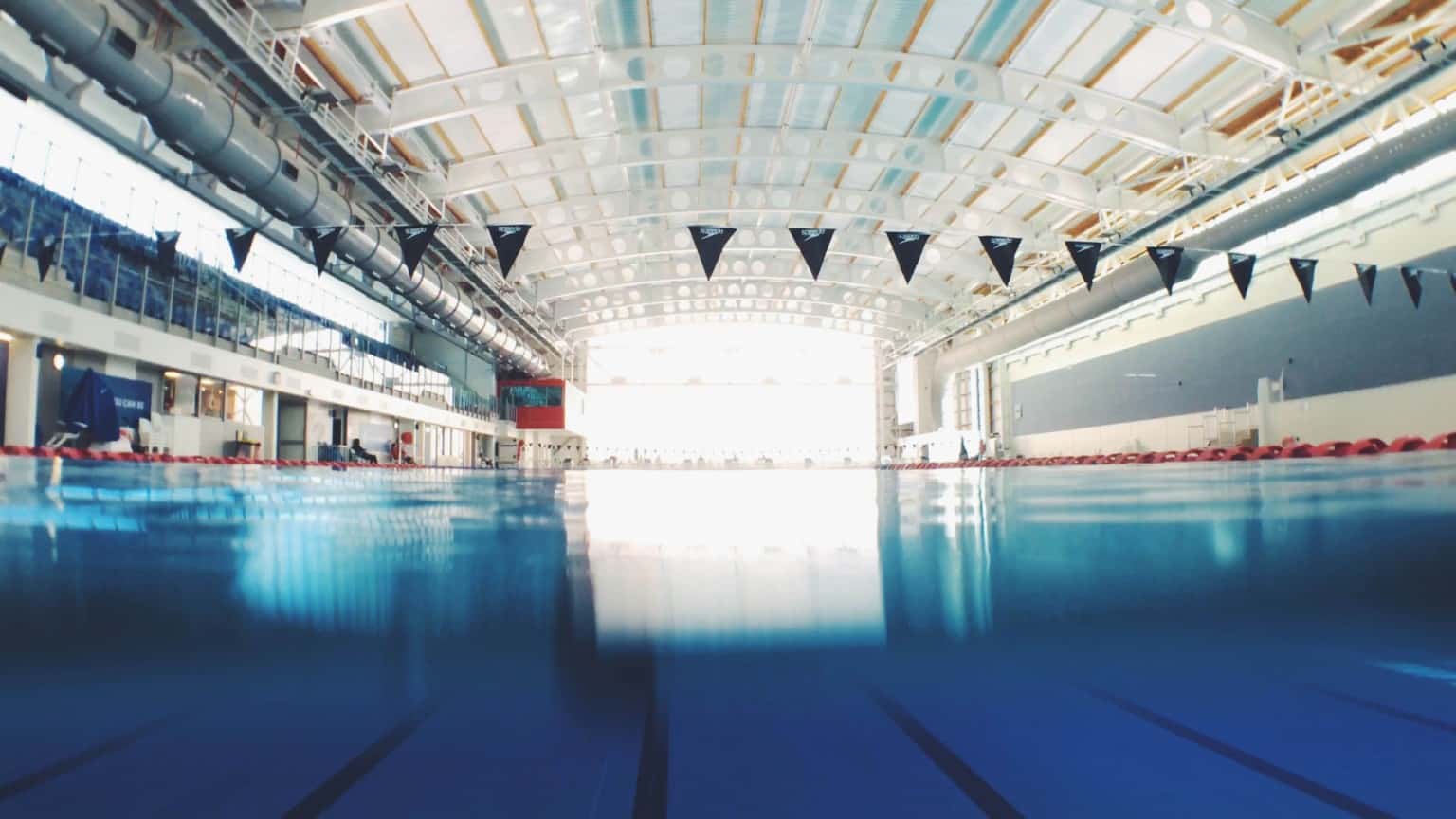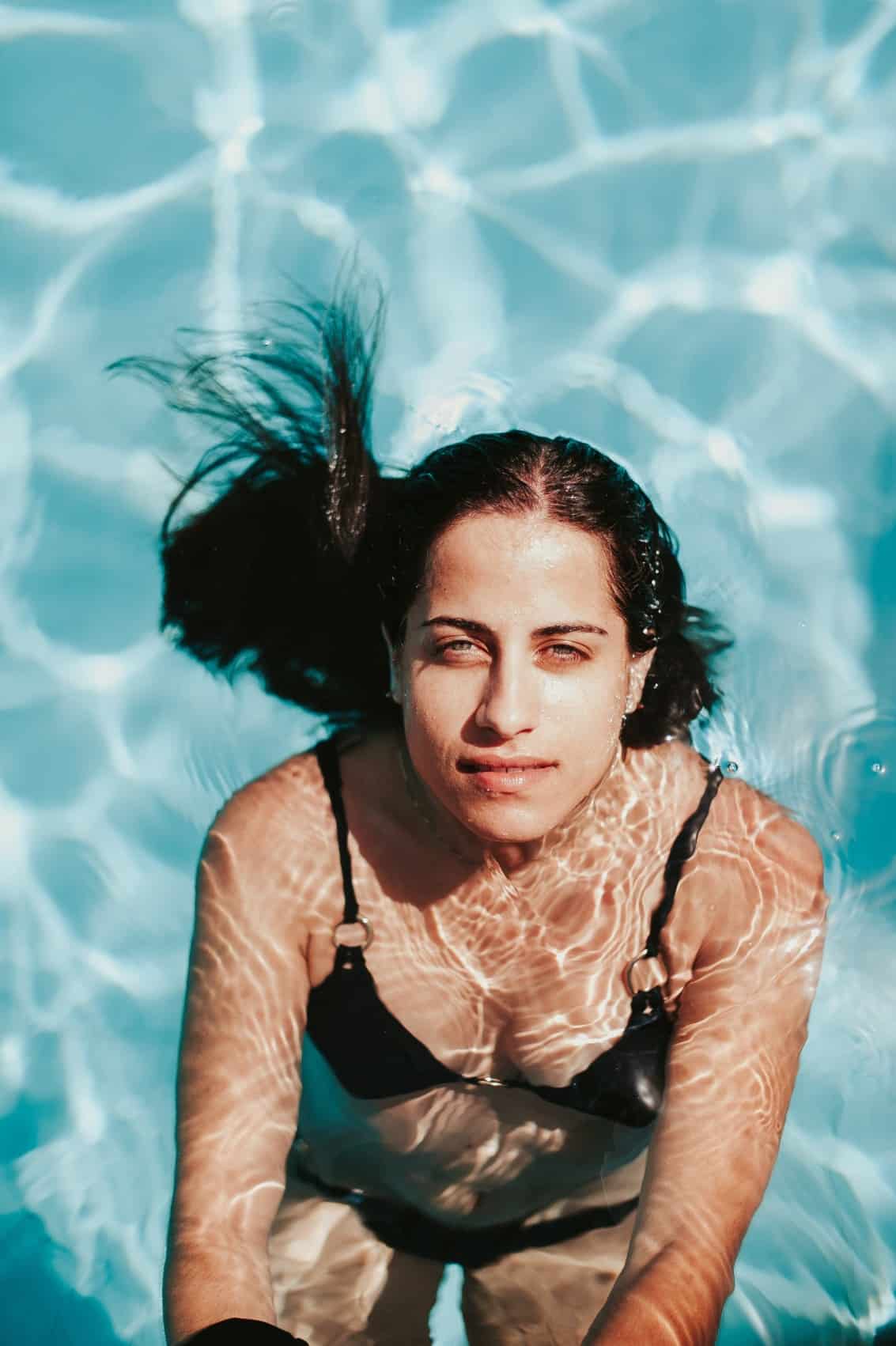Most of us when it comes to water we would rather be surfing. But if you are unable to surf and want to stay in shape, swimming is one of the best surf training exercises that you can do. And if we leave surfing aside, it is actually one of the best exercises you can period. And it’s a great way to stay cool during the summer. The most convenient way to regular swimming is getting a swimming pool membership. What I personally hate about pools is the chlorine. So this post will not be so much exercise related but more on how to deal with chlorine if you have sensitive skin and want to keep your hair healthy and shiny looking. Because unfortunately, the chlorine in swimming pools can wreak havoc on your skin and hair. Here’s what you can do to prevent the damage.
Stay outdoors
Try to restrict your swimming activities to outdoor pools. This allows the gaseous chemicals to dissipate, which means they’ll be less dense. If it’s not possible to use an outdoor pool, the next best thing is to look for an indoor pool with good ventilation. Poorly ventilated pools trap those gases inside with you.

Shower before and after your swim
Most people understand that they need to shower after they finish swimming in order to rinse the chlorine and other chemicals off their skin. But it’s just as important to take a quick shower before diving into a pool. By wetting your hair and skin first, it will be too saturated to absorb as much of the chemically-treated water.
When showering post-swim, use a shampoo free of sulfates and wash your hair thoroughly. Rinsing your hair for at least five minutes will ensure you get all the chlorine out of your hair follicles, which will help prevent irritation.
If you’re concerned regular showers aren’t doing enough to rinse the toxins from your hair, you can rinse with apple cider vinegar first. This works to clarify the hair and remove harmful chemicals, while also eliminating the dull appearance pool water can create. Better, apple cider vinegar rinses other contaminants often found in swimming pools, like salt and copper, as well.
Treat your hair first
Another good preventative measure is to apply oil or conditioner to your hair before swimming. When you coat your hair in something like coconut oil, you create a barrier that protects the follicles from chlorine. The oil will also nourish your hair follicles, leaving you with healthier, stronger hair.
Wear a cap
If you choose oil over conditioner, be sure to wear a swimming cap because the oil has a tendency to increase the risk of sun damage. You should really be wearing a swimming cap anyway, if only because it provides an additional barrier that prevents the chemicals in pool water from attacking your hair and damaging the follicles.
For best results, employ all three preventative measures: shower, apply oil, and wearing a swimming cap.

Wear sunscreen
Don’t forget to apply a protectant to your skin as well. If the pool is outdoors, you should wear a sunscreen with an SPF (Sun Protection Factor) of 30 or higher. If you’re swimming indoors, you can still protect your skin with lotion or a good skin oil.
Stop Using Your Hair Dryer
The hot air from a blow dryer can maximize all the damage pool water does to your hair. For this reason, it’s better to pat your hair to remove excess water and let it dry naturally.
There’s no reason why swimming has to mean damage to your skin and hair. You can avoid frizzy hair, a dry, itchy scalp and dry skin by implementing a few preventative measures. Taking the extra time to shower and apply lotion and conditioner will mean leaving the pool with healthy skin and hair.

